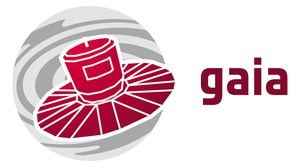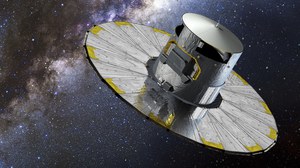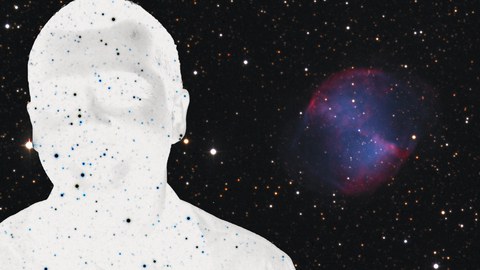Space Astrometry — Gaia
Gaia is the space astrometry project of European Space Agency (ESA). After about 20 years of development, Gaia was successfully launched on December, 19th 2013. Gaia is a special astrometric space telescope measuring 3-dimensional positions of about one billion stars, quasars and solar system objects as well as 3-dimensional velocities of those objects.
Our group at the Lohrmann-Observatory works actively for the project since 2001.
 © ESA
© ESA
Space Astrometry and the Gaia Mission
Gaia is the space astrometry project of European Space Agency. After about 20 years of development, Gaia was sucessfully launched on 19th December 2013. Gaia is a special astromeric space telescope measuring 3-dimensional positions of about one billion stars, quasars and solar system objects as well as 3-dimensional velocities of those objects. Through multi-band photometry and spectrometry of each source Gaia also determines the physical character and properties of these objects. The accuracy of measurements that are being produced by Gaia is up to a few microarcseconds. One microarcsecond corresponds to the thickness of a standard sheet of paper (50 micrometer) as seen from a distance equal to the Earth diameter. A group in Lohrmann observatory actively participates in Gaia since 2001. Our fields of expertise in Gaia are relativistic modelling of astrometric data, tests of fundamental physics with Gaia data, certain aspects of calibrations of the astrometric instrument as well as quality assurance of the final astrimetric catalog.
Lohrmann Observatory coordinates the Gaia collaboration REMAT that is responsible for relativistic modelling of Gaia data and for the use of microarcsecond astrometric observations for tests of relativity and other aspects of fundamental physics. We also participate in many aspects of astrometric data processing for Gaia. In addition, we are responsible for the monitoring of the Gaia on-board clock and for the time synchronization between the Gaia clock and the clocks on the Earth.
You can get more informations from the Gaia Posters. Furthermore, we kindly refer you to the following content:
- Slides of the Gaia-Lecture on September 15th, 2016 from the lecture in celebration of Gaia Data Release 1 on September 14th, 2016.
- Slides of the Gaia-Lecture on April 27th, 2018 from the lecture in celebration of Gaia Data Release 2 on April 25th, 2018.
- Slides of the Gaia-Lecture on Juli 1st, 2022 from the lecture in celebration of Gaia Data Release 3 on June 13th, 2022.




